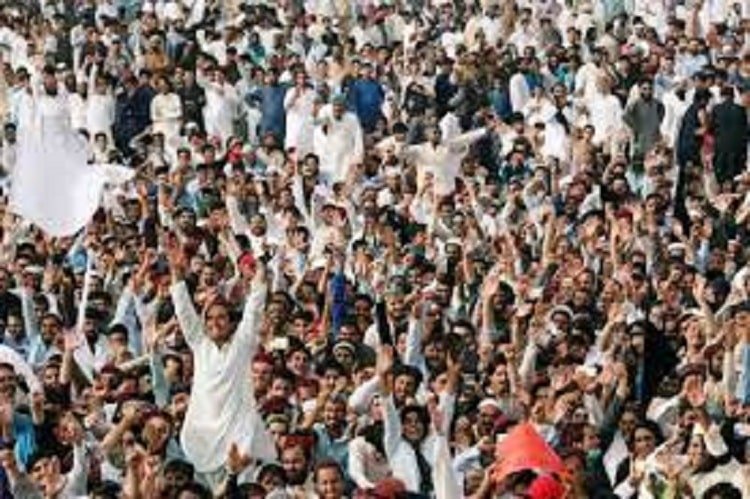Asad Ali
The recent announcement from Tehreek-i-Taliban Pakistan (TTP) of a temporary ceasefire in the Khyber district, claiming it is to let Pashtun Tahafuz Movement (PTM) organize a Pashtun Qaumi Jirga, has prompted some deep concerns about the emerging connections between these two groups. It is interesting that both groups claim to fight for the Pashtun people’s interests. However, it is just a mockery.
The fact that TTP decided to issue a ceasefire to support the PTM activities gives an impression of some link or deep sympathies. The TTP whose barbaric acts against Pashtun populace are well documented is now helping PTM’s so-called ‘peaceful’ protests.
This relationship shows the hypocrisy of PTM regarding the Pashtun rights issue, as it is working with the dragon directly or indirectly with the forces that have unleashed terror and mayhem upon the very people, Pashtuns they claim to represent.
Nonetheless, PTM, claiming to be a Pashtuns’ rights organization, has a questionable policy; it demands pulling down security check posts in troubled areas. Pakistan’s security forces have constructed these checkpoints. PTM wants their elimination; however, the group, through asking for their removal, is indirectly opening the space for terrorist groups such as TTP. This demand perfectly fits the interest of militant groups who would want to see a reduction in the state’s capacity to control its territory and prevent terrorism.
TTP, however has heavily claimed to represent the Pashtun people; they are vehemently doing the contrary all along.
The TTP itself has been the biggest militant group in Pakistan that has exploited the Pashtun people and grossly violated the Pashtun culture and norms by launching acts of terror and other abnormal practices.
From the APS massacre in Peshawar to numerous other acts of terrorism, TTP’s violence and cruelty are unambiguously and explicitly targeted directly at the societal core – the Pashtun.
The PTM also remains as unresponsive as ever to TTP’s acts of terror against the Pakistani state.
Although PTM has taken out protest rallies and demonstrations against the state, it has never called a Jirga or any such meeting to condemn the TTP, who have caused more suffering to the Pashtun people. The group’s apparent lack of concern over TTP’s terrorism puts the group’s profile into question.
If PTM fails to condemn the violence and terrorism being committed by TTP, then it is supporting those who seek to derail and demolish Pashtun society. Their one-sided approach of bashing state and remaining quite about the havoc created by terror organizations does not depict the genuine welfare of Pashtun.
Standing at a nexus between Al Qaeda and modern-day Khawarij, TTP is directly attributed to some of the barbarisms witnessed in the history of Pakistan.
They have murdered ordinary Pashtuns, abducted people, and orchestrated suicide bombings in social and religious events. That is why the actions being conducted today by TTP are deliberate attempts to change the pattern of the traditional tribal structure and establish a reign of terror that will dismantle the social structure of the Pashtuns.
These Khawarij have targeted the base of Pashtun culture, its elders, and its traditional values. By assassinating community leaders and challenging the Jirga form of conflict resolution, its’ goal has been to replace this form of governance and order with its brand of militant and terrorist rule.
As a result, they have not only inflicted damage on certain areas but have attempted to redefine the cultural legacy of the Pashtun nation in the spirit of the utterance of intimidation and oppression.
This is absurd because PTM does not represent the Pashtun people, though it has been portraying itself. It’s actions point to the fact that it is a bigger threat than a defender of Pashtun rights.
Pashtun people have always backed the state of Pakistan against terrorism. PTM has earned a lot of support from the Pashtun groups in this struggle, but it is also quite apparent that the people’s adequate allegiance is not with the movements but with the goal of maintaining law and order in this part of the world.
Both TTP and PTM, despite all that they may say, are working against Pashtun people in one way or another. Alas, TTP has the heaviest toll on Pashtun culture, while PTM, in some ways, disturbs law in order.
It is for Pashtun society to remain supportive of the state in countering the terrorism narratives and actions of those threatening their societies. The Pashtun people can safeguard their culture, traditions, and methods of living from those who want to demolish them.
*The writer is an Islamabad-based researcher and analyst.
The views expressed in this article are those of the author and do not necessarily reflect the official stance of The Diplomatic Insight or its editorial board. The content is provided for informational purposes only and should not be construed as an endorsement of any particular viewpoint, policy, or action.
Established in December 2008, The Diplomatic Insight is Pakistan’s premier diplomacy and foreign affairs magazine, available in both digital and print formats.



